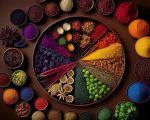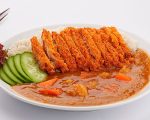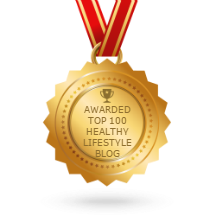The Right Way to Do a Vegan Diet/lifestyle

The popularity of the vegan diet/lifestyle is huge. What was once associated with a select few, is today a lifestyle adapted and practiced by millions of people, including heavyweights like celebrities, for a variety of health, ethical, and environmental reasons. This shows the global demand for a vegan diet/lifestyle is rising, with reports anticipating that plant-based foods will become the food trend and new organic.
Benefits of a vegan diet/lifestyle
Perhaps the driving force for its popularity is the benefits accrued from going vegan, which include:
● Nutritional value
● Purifies our minds and lifts our moods
● Reduces the risk of certain diseases, including heart disease
● Reduces the onset of migraine attacks
● Positive effect on weight loss as a result of fewer calories
● Improves athletic performance
● Better vision and less macular degeneration
● Balances hormones
● Enjoyment of a longer and healthier life
What it means to be vegan
A vegan or plant-based diet/lifestyle is a way of living that attempts to exclude all animal products such as meat, eggs, and dairy products.
There are different types and several variations of the vegan diet/lifestyle.
The focus, however, is on plant-based foods and beverages, eliminating all animal products and byproducts or foods involving animals in their processing mechanism.
So in place of meat, fish, dairy, or poultry, you have fruits, nuts, veggies, beans, and grains on your plate.
A vegan diet doesn’t automatically make it a low-fat or low-carb diet; it just cuts out the meat.
What to eat on a vegan diet/lifestyle
Ideally, a vegan diet/lifestyle involves plant-based foods and beverages so you can eat fruits, veggies, legumes, grains, nuts and seeds, natural sweeteners (no honey), tofu and tempeh, and plant-based oils.
You can substitute honey with maple syrup, or coconut sugar, but in moderation.
Add fermented foods like kimchi, seaweed, miso paste, nutritional yeast, and sauerkraut for vitamin intake.
There are some foods that may be potentially sneaky, coming across as vegan but they’re not. These include sugars, deep fried foods (like onion rings fried in animal fat), roasted salted peanuts,
food/drinks with red coloring, condiments, sauces, dressings, and certain breads, and juices.
Conclusion
With an understanding of what constitutes a balanced vegan diet/lifestyle, plus good planning, you can give your body all the nutrients it needs. A vegan diet offers no less than what a non-vegetarian diet does. All we need is to transform the way we live and eat.








Veganism is defined as a way of living that attempts to exclude all forms of animal exploitation and cruelty, whether for food, clothing or any other purpose.
For these reasons, the vegan diet is devoid of all animal products, including meat, eggs and dairy.
Nice article
With food plan u can change ur lifestyle
A vegan diet excludes all animal products. Many people choose to eat this way for ethical, environmental or health reasons.
Whole-food vegan diet: A diet based on a wide variety of whole plant foods such as fruits, vegetables, whole grains, legumes, nuts and seeds.
Superb
So informative topic
Raw-food vegan diet: A vegan diet based on raw fruits, vegetables, nuts, seeds or plant foods cooked at temperatures below 118°F (48°C) (1).
Nice discussion
Very useful
Article is so vegan….
The best way to plan ur life
Real source ofcreal energy
Energy Booster
Nature’s miracle
80/10/10: The 80/10/10 diet is a raw-food vegan diet that limits fat-rich plants such as nuts and avocados and relies mainly on raw fruits and soft greens instead. Also referred to as the low-fat, raw-food vegan diet or fruitarian diet
Excellent information
Right idea for right path
The starch solution: A low-fat, high-carb vegan diet similar to the 80/10/10 but that focuses on cooked starches like potatoes, rice and corn instead of fruit
Food information with scientific detail
Live long n healthier life
The thrive diet: The thrive diet is a raw-food vegan diet. Followers eat plant-based, whole foods that are raw or minimally cooked at low temperatures
Its so pretty article
The best
Junk-food vegan diet: A vegan diet lacking in whole plant foods that relies heavily on mock meats and cheeses, fries, vegan desserts and other heavily processed vegan foods
Improve sportsman performance
These ingredients r God gifted
the information provided in this article relates to vegan diets is very impressive
Vegan Diets Can Help You Lose Weight
Vegans tend to be thinner and have a lower body mass index (BMI) than non-vegans
an increasing number of people turn to vegan diets as a way to lose excess weight
These may include healthier lifestyle choices, such as physical activity, and other health-related behaviors.
Good one
Part of the weight-related benefits vegans experience may be explained by factors other than diet
However, several randomized controlled studies, which control for these external factors, report that vegan diets are more effective for weight loss
Interestingly, the weight loss advantage persists even when whole-food-based diets are used as control diets
Vegan diets recommended by the American Dietetics Association (ADA), the American Heart Association (AHA) and the National Cholesterol Education Program (NCEP
researchers generally report that participants on vegan diets lose more weight than those following calorie-restricted diets, even when they’re allowed to eat until they feel full
Beneficial for everyone
Weldone
The natural tendency to eat fewer calories on a vegan diet may be caused by a higher dietary fiber intake, which can make you feel fuller
Its good sound
Vegan diets seem very effective at helping people naturally reduce the amount of calories they eat, resulting in weight loss.
Adopting a vegan diet may help keep your blood sugar in check and type 2 diabetes at bay.
Great summary
Several studies show that vegans benefit from lower blood sugar levels, higher insulin sensitivity and up to a 78% lower risk of developing type 2 diabetes than non-vegans
Part of the advantage could be explained by the higher fiber intake, which may blunt the blood sugar response. A vegan diet’s weight loss effects may further contribute to its ability to lower blood sugar levels
Like it
Weight loss with wait
Best life survival idea
Vegan diets seem particularly effective at improving markers of blood sugar control. They may also lower the risk of developing type 2 diabetes.
Nice article
2sexuality
3homeland
gay cruising chat https://bjsgaychatroom.info/
free dating for biand gay men https://gaypridee.com/
cookeville tn gay chat https://gaytgpost.com/
fcn free gay chat free chat network https://gay-buddies.com/
slots era cheats https://2-free-slots.com/
free slots 777 sizzling 7s https://freeonlneslotmachine.com/
wind creek online slots https://pennyslotmachines.org/
lenovo y700 nvme slots https://slotmachinesworld.com/
games slots https://slotmachinesforum.net/
free slots win real money https://beat-slot-machines.com/
free quarter slots https://411slotmachine.com/
free casino slots https://www-slotmachines.com/
ali baba slots game free https://slotmachinegameinfo.com/
rutgers dissertation proposal help https://dissertationwriting-service.com/
acls mellon dissertation https://help-with-dissertations.com/
dissertation titles https://mydissertationwritinghelp.com/
english literature dissertation help https://dissertations-writing.org/
Looking for Nursing Homework Help online? We’re writing assignments for nursing students all over the world to provide the best nursing assignment help.
Why couldn’t I have the same or similar opinions as you? T^T I hope you also visit my blog and give us a good opinion. baccarat online
Hello! This is a quick question that’s Do you know how to make your site mobile friendly? It looks weird when I search my web log. I’m looking for my Apple iPhone theme. Alternatively, you can use the plug-in to resolve this issue. If you have any suggestions, please share them. Thank you! 토토사이트추천
I’d simply say your article is amazing. The clarity of your post is simply excellent. And I can guess you have knowledge of this subject. OK. Please allow me to snatch your RSS feed for storage with your permission. Until recently, he will be in office soon. Thank you, million and keep up the good work. 토토사이트추천
Reading this, I believe it is rather enlightening. Thank you for your time and effort in organizing this informative article. Once again I find myself spending too much time reading and commenting. But so what, it was still worth it! 플레이포커머니
https://meclizinex.com/
antivert
tadalafil generic where to buy http://tadalafilise.cyou/# cialis at canadian pharmacy
stromectol for humans for sale http://stromectolese.com/# stromectol for lice
buy stromectol online fitndance http://meclizine.top/# buy stromectol online uk
stromectol for lice http://isotretinoin20mg.shop/# stromectol for lice dosage
cialis at canadian pharmacy http://tadalafilise.cyou/# buy tadalis
order stromectol 6mg online cheap http://isotretinoin20mg.shop/# order stromectol 6mg sale
ivermectin for head lice dosing http://meclizine.top/# ivermectin for lice dosing
tppaexii http://para-mayores.es/# kywqlyjy
50mg accutane accutane generic 6000 mg accutane
Thank you, I’ve been looking for information on this topic for a while and your information is the best I’ve found out so far. But what about the conclusion? Are you sure of the source? 메이저놀이터
schedule rx pharmacy one source script pharmacy secure medical online pharmacy